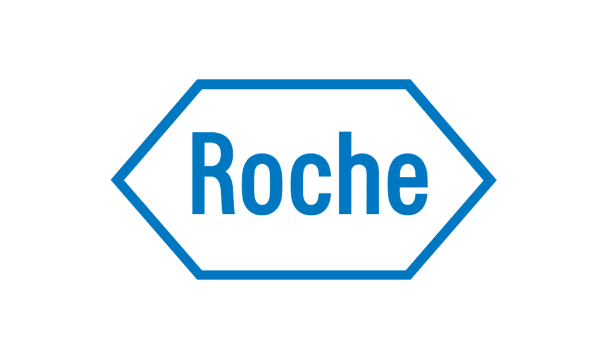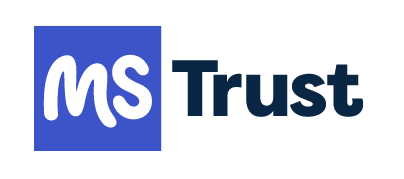Before you watch this webinar
Enhancing your learning experience begins with understanding you better. Collecting data enables us to tailor our educational content specifically for our audience. Discover more about how we handle your information in our Privacy Policy.
Event
Neuro rehabilitation – now and the future
Our sponsor

This activity has been supported by sponsorship from and Roche. The sponsor has had no control over the educational content of this activity.
Summary
COVID-19 has transformed the way neurorehabilitation is planned and delivered – but how much of that change will remain?
Experts from across the UK shared their experience of working in the community over the last few months, and their predictions and expectations for the future.
The future of the neurologist, Dr Agne Straukiene (03.22)
“Before COVID-19, I felt under a lot of stress with the number of investigations, the number of patients I needed to see, the number of reports coming in – I felt it was just unsustainable,” said Agne.
When the pandemic arrived, Agne and her team, like many others, were forced to reorganise services and embrace virtual consultants. She described it as “challenging” but added that things were getting easier over time. Digital solutions, she pointed out, could help to increase capacity in the long run.
Multiple Sclerosis Connect is a new app, developed by Agne and her team before the pandemic, to help those newly diagnosed with MS to educate themselves on the disease. When it was launched in March the team realised it had greater utility.
It features a video library of exercise programmes put together by a physiotherapist, that focus on limb strength, balance, co-ordination, and hand function, as well as cognition. The app also includes links to Agne’s mindfulness and meditation podcast, #BEEWELLWITHMS
Digital approaches are useful, but it’s important to remember they are not for everyone, Agne said.
“There will be patients who require a more low-tech approach and these people should come into face-to-face clinics. And there is obviously a limit to what we can do remotely.”
Future services will be a hybrid of virtual and face-to-face clinics, she predicted, adding that the community needed to think about delivering group sessions, education, and MDT clinics remotely.
She added:
- virtual “PwMS Hub” could allow people to support each other and teams to run regular research surveys
- wearables and bio sensors might help teams to monitor patients in the future
- working digitally could allow HCPs from across specialities to work together for the good of the patient
- work needs to be supported by the right data infrastructure and admin support
“Distance is no longer an issue if you employ the tech. By working together, no matter where your service is, we can support each other… This is the way forward.”
The role of the dietitian, Margie Leong (16.45)
Margie started by outlining the main reasons patients were referred to her, saying that nutritional support for underweight people was the most common. Her work involves:
- offering practical advice on appropriate foods
- advising on fortifying foods to get their maximum nutritional content
- advising on the use of prescribed herbal supplements
- working closely with speech and language therapists to tackle dysphasia
- advising people on the evidence base surrounding special diets
She also works with people who need to lose weight, which could be linked to decreased activity levels, steroids, or struggles with anxiety or depression. This is particularly pertinent during COVID-19, she added, as obesity has been linked to poorer outcomes.
“Lockdown and social distancing has had an impact on how, what, and when we eat, and there have been both positive and negative aspects to this,” said Margie.
Some people have enjoyed cooking from scratch and have been eating more home-cooked meals, whereas others may have eaten less healthily, or drunk more alcohol, thanks to feeling isolated or depressed. The same is true for exercise – some people have taken the opportunity to take up a new activity, but others have been stuck indoors and unable to stay active.
During the pandemic, appointments have switched from face-to-face to telephone in the majority of cases. After the call, Margie emails a list of goals, as well as links to relevant websites and support sources, then follows up by phone or text, depending on the patient’s preference. Home visits are only carried out “when absolutely necessary”.
Nutrition nurses, who used to visit PEG-fed patients in their homes, have developed a suite of training videos, covering topics such as working feeding pumps and dealing with blockages. They have also been offering video appointments.
“If someone has been seriously unwell with COVID-19, especially if they have spent time in ICU, there are a lot of potential issues that can affect their nutritional status… and can last for three months, six months, a year or even more, after discharge,” said Margie.
The following long-term complications of COVID-19 can put people at high risk of malnutrition:
- loss of smell and taste
- lack of appetite
- early satiety
- dysphagia
- debilitating weakness
- changes in sleeping patterns
- low mood/anxiety/delirium
“It’s really important to optimise nutrition during this rehab phase… we are not just building up fat stores, but ensuring that someone’s protein intake is adequate to get the muscle mass back again,” said Margie.
The role of the speech and language therapist (SLT), Sherridan Daly (32.25)
Dysphasia is a common MS symptom, and one that takes on an added relevance in the light of COVID-19, said Sherridan.
“It can start with a cough on food or drink when you’re tired restless or distracted, and can progress to things as severe as weight loss, choking, and recurrent chest infections. Because of this, it’s particularly important to bring even mild dysphasia under control, especially with COVID-19, in terms of respiratory compromise,” she said.
Sherridan’s SLT service ran throughout lockdown via video and phone assessment and advice, as well as a limited number of face-to-face appointments for high-risk patients who were unable to access the technology.
In terms of video appointments, the team have used the patient’s preference of platform, including WhatsApp, FaceTime, Skype or Zoom, and their own devices where necessary.
“We are finding that video isn’t as effective as face to face. We are not able too pick up on some of the more subtle signs that we generally rely on. It means video increases on reliance on what we are told,” said Sherridan.
Speaking to others around the patient, such as family members or care home staff, can help overcome this barrier, she added.
During a dysphasia assessment, the SLT will evaluate severity and risk of aspiration, then provide advice on:
- the safest and most comfortable food textures
- fluid intake
- individual and standardised strategies (e.g. position while eating, eating when less fatigued etc)
The SLT will work with the whole family, and make sure that whoever cooks at home understands the advice and the risks of certain foods.
“In terms of COVID… any respiratory compromise will affect swallowing,” said Sherridan.
COVID symptoms include cough, breathlessness, and fatigue, all of which can increase the likelihood of aspiration. Sherridan’s advice to patients was to:
- breathe in before swallowing to avoid breathlessness
- eat little and often to avoid fatigue
- choose softer, more moist food textures to reduce chewing
- take small mouthfuls and single sips
Some patients, especially those who have been intubated, will need help with their communication.
Typical interventions, Sherridan said, focus on breath support though more high-tech options, such as speech impairment translation apps, are in the pipeline.
Strategies to help manage breathlessness during COVID-19 include:
- taking a breath just before speaking
- speaking in shorter phrases of just two or three words
- engaging support from others
IAPT perspective (42.59)
As a cognitive behaviour therapist Camile, usually sees patients face to face at GP surgeries and hospital settings. Her organisation, Mind Matters, offers CBT-based therapies to everyone aged 17-plus, but a large majority of her caseload are living with ling-term conditions, including MS.
“Because of the pandemic, all my clinical work has moved to the telephone or video conferencing. This has been absolutely essential to continue to support individuals – their mental health difficulties haven’t just gone away because I’m not able to get out,” she said.
Camile said she had spotted a number of themes in terms of how COVID-19 was affecting people with MS:
- an increase in anxiety and worry (e.g. catching the virus, the implications of catching the virus, dealing with the unknowns)
- the impact of shielding (e.g. feeling socially isolated)
- the impact of being unable to work on the daily routine
- changes in family relationships / dynamics (e.g. the impact of spending 24/7 together_
“Patients have been really pleased to be continue with therapy, albeit in a slightly unusual way. It’s certainly been the case that some of the original goals for therapy have very much changed, and the focus has been more on coping and getting through lockdown and the pandemic,” said Camile.
Thanks to apps and technology, said Jacqueline, Mind Matters continued “to operate a service that was as close to our normal service as possible”.
She added that recovery rates were up and DNA rates were down, leading the service to believe that the “new normal” might look very different to what had gone before.
During the pandemic the team has:
- offered one-off group sessions via video
- offered anxiety and worry management sessions
- made links with and signposted to local community services and support
- been in regular contact with those unable or unwilling to use the service’s video conferencing offering via the telephone
Future plans include:
- setting up social media pages
- developing guided self-help videos
- re-establishing face-to-face appointments for those with a clinical need
The role of the physiotherapist, Kim Knight (56.56)
Kim, an independent prescriber who provides Botox therapy as part of her spasticity clinic, works with people with a wide range of neurological conditions. Between 20 and 25% of her team’s caseload has MS.
During the first two weeks of the pandemic, the service was shut down. Patients were managed via telephone calls and signposted to local support agencies to make sure they could get food and their medication. The team continued to see patients who were at high risk of readmission only, and all exercises classes were cancelled.
“(The classes) were a really good peer support network, and some clients have been coming to the group for years, so I know that would have been a big loss,” said Kim.
During the following weeks, Kim’s team started to take new referrals via the phone, directing people to websites such as the MS Society, trust exercise protocols and online resources. They managed crisis patients with face-to-face visits and utilised the Attend Anywhere video platform with some “really successful appointments”.
As they move towards a new way of working, the main concerns are:
- the number of patients on the waiting list for review
- patients who may have missed out on referrals during the peak of the pandemic
- how to start clinics up safely and finding gym space to restart classes
“Hopefully, the future will be a better version of how we did it before… As physios and therapists, we like to be with our patients, we have to touch them and help them to move… but there are obviously aspects of Attend Anywhere that we need to keep,” she said.
The team are planning:
- remote MDT
- video-link group sitting exercise classes
- one-to-one gym-based sessions
Presentation slides
Resources
- Self-care app for people with MS “MS CONNECT Plus”:
- Mindfulness podcast by Dr Agne Straukiene “Bee well with MS”
- COVID-19 & good nutrition: Managing adult malnutrition: Including a pathway for the appropriate use of oral nutritional supplements (ONS)
- IAPT guide for delivering treatment remotely during the Coronavirus pandemic
- Mind Matters Surrey
- NHS England – Improving Access to Psychological Therapies Programme
- The Improving Access to Psychological Therapies (IAPT) Pathway for People with Long-term Physical Health Conditions and Medically Unexplained Symptoms
Our Multiple Sclerosis webinars are available on SoundCloud:
soundcloud.com/neurologyacademy
Our sponsor

This activity has been supported by sponsorship from and Roche. The sponsor has had no control over the educational content of this activity.
Speakers
 Ruth Stross
Ruth StrossDirector of services, MS Trust
 Dr Agne Straukiene
Dr Agne StraukieneConsultant neurologist, Torbay and South Devon NHS Foundation Trust
 Margie Leong
Margie LeongSpecialist dietitian, Community Neurorehabilitation Team, Surrey
 Sherridan Daly
Sherridan DalyHighly specialist speech and language therapist, Surrey Downs Health and Care
 Kim Knight
Kim KnightClinical specialist physiotherapist, Stroke and Neuro Rehab Service, Torbay and South Devon NHS Foundation Trust
 Camille Whitehead
Camille WhiteheadCognitive Behavioural (CBT) Therapist, IAPT Mind Matters Surrey, Surrey and Borders Partnership NHS Foundation Trust
Encouraging excellence, developing leaders, inspiring change
MS Academy was established in 2016 and in that time has accomplished a huge amount with exciting feedback demonstrating delegates feel inspired and energised along their personal and service development journeys. The various different levels of specialist MS training we offer are dedicated to case-based learning and practical application of cutting edge research.




